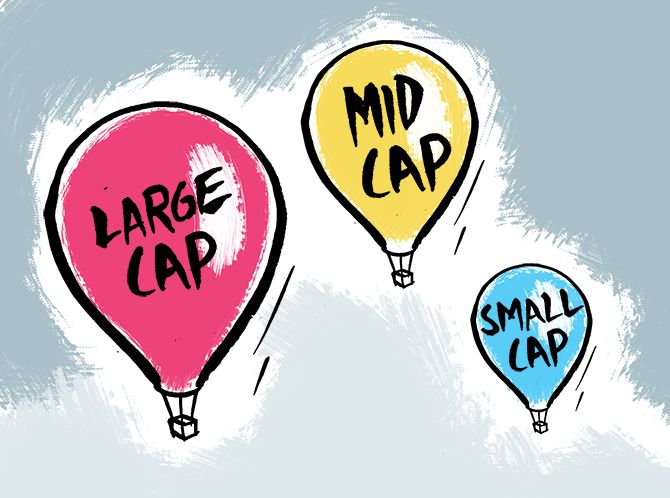You should not simply invest in a debt fund giving higher returns, but understand your investment horizon first, says Abhishek Dev, chief business officer, TRUST AMC, an investment services company.

A debt mutual fund is a category of mutual funds which predominantly invests in fixed income instruments like, government bonds, corporate bonds, debentures, treasury bills (commonly known as T-bills) and money market instruments.
Compared to equity funds, they are lower risk profile and are usually suitable for investors for very short term (a few days) to short term (few months to a year), medium (few years) and longer term (5 years or more) depending on the type of debt fund and investment horizon.
Compared to this, equity Funds should ideally be considered only for long term investments as they are more volatile in short to medium term.
Although debt funds are relatively safer, there are risks that need to be considered. For example, credit risk, interest rate risk and liquidity risk which could impact your investment outcome.
Here are some of the aspects investors should consider before investing in a debt fund.
1. Investment horizon is the key
Every debt fund may not be suitable for you. You should not simply invest in a debt fund giving higher returns but understand your investment horizon first.
For a shorter investment horizon, say for a few days or weeks, a liquid fund may be suitable.
However, for longer investment horizon, say for a few months to a year, you may choose a Ultra Short Term to a short-term duration bond fund.
For example, a banking and PSU debt fund are suitable for an investment horizon of 3 to 5 years and they also provide tax-efficient returns via indexation benefits for holding over 3 years.
2. Credit quality of the portfolio
Debt securities are duly rated by the credit rating agencies (ICRA, CRISIL etc) depending on the issuer's creditworthiness and capacity to pay back.
While the highest rating of AAA denotes relatively lowest credit risk, the lowest credit rating of C denotes high default risk.
Usually lower credit rated instruments bear higher interest rates. Hence investors should consult their advisor to ensure that they are not investing simply on the basis of higher interest rates, but are also able to consider the risks of the portfolio in line with their individual risk appetite.
While investing in liquid /ultra short term funds etc. investors should also be aware of the 'rating paradox', which basically means that an issuer with a lower long-term rating can still be rated high in the short term.
3. How important is the fund size?
A common investor might be tempted to conclude that a debt fund with a higher AUM would be better to invest in. But that may not always be the case.
For example, for a liquid fund, liquidity depends on the quality of the underlying assets and not the fund size.
Hence, one should not get swayed just by the AUM of a particular debt fund. They should rather focus on the portfolio constituents
4. Interest rate movements and your risk appetite
The interest rate regime plays an important role in the intermediate NAV movement /returns of debt funds. This is because yield and bond prices are inversely related.
In a falling rate scenario, bonds issued in the past are valued higher than the newly issued bonds.
As bond prices go up, NAVs of the debt funds also gets a boost and vice versa. Similarly in a rising rate scenario, bond prices go down as investors are keen to invest in freshly issued bonds with a higher rate.
The impact of this is higher in the longer duration funds. However, it may be noted, that with increase in interest rates while the immediate NAV takes a hit due to price movement, the interest accrual also increases, which, over time would compensate for the price change.
This is one more reason why longer maturity funds (i.e. Income Funds) should be invested with a longer horizon (for example, 3 years and more).
5. So what is maturity and duration?
A debt fund invests in various debt instruments with different maturities. These collectively determine whether the fund is short-term, medium-term or long term.
Weighted average maturity considers the maturity of each asset of the fund and also its weightage in the entire portfolio.
Hence funds with higher weighted average maturity (and higher interest rates) tend to deliver better returns over time because of their ability to hold these assets for longer.
But at the same time, they are vulnerable to fluctuations in interest rate which can impact the NAV of the fund.
Modified duration is simply the weighted average price sensitivity of a debt portfolio to change in the interest rate.
Longer the duration higher the sensitivity to interest rate changes and hence they should be invested in with a longer time horizon.
Debt funds should be integral part of the investment portfolios and your asset allocation. These should be invested in line with your time horizon and risk tolerance levels.
Happy investing!
Statutory disclaimer: The article is meant for general reading purpose and views expressed herein constitute only the opinions and do not constitute any guidelines or recommendation on any course of action to be followed by the reader.
This information is meant for general reading purposes only and is not meant to serve as a professional guide for the readers.
Whilst no action has been solicited based upon the information provided herein; due care has been taken to ensure that the facts are accurate and opinions given are fair and reasonable.
This information is not intended to be an offer or solicitation for the purchase or sale of any financial product or instrument.
Recipients of this information are advised to rely on their own analysis, interpretations and investigations.
Mutual Fund investments are subject to market risks, read all scheme related documents carefully.








